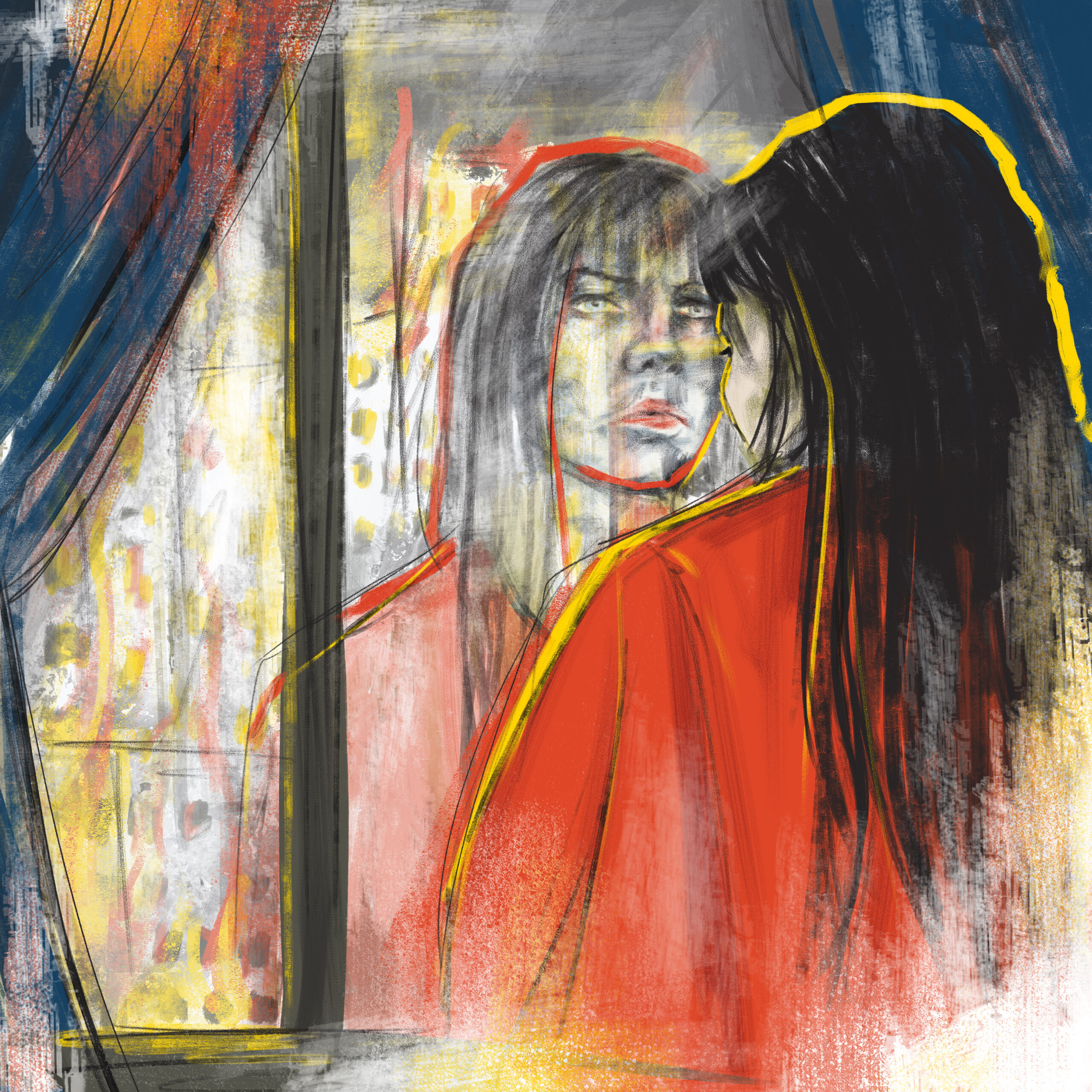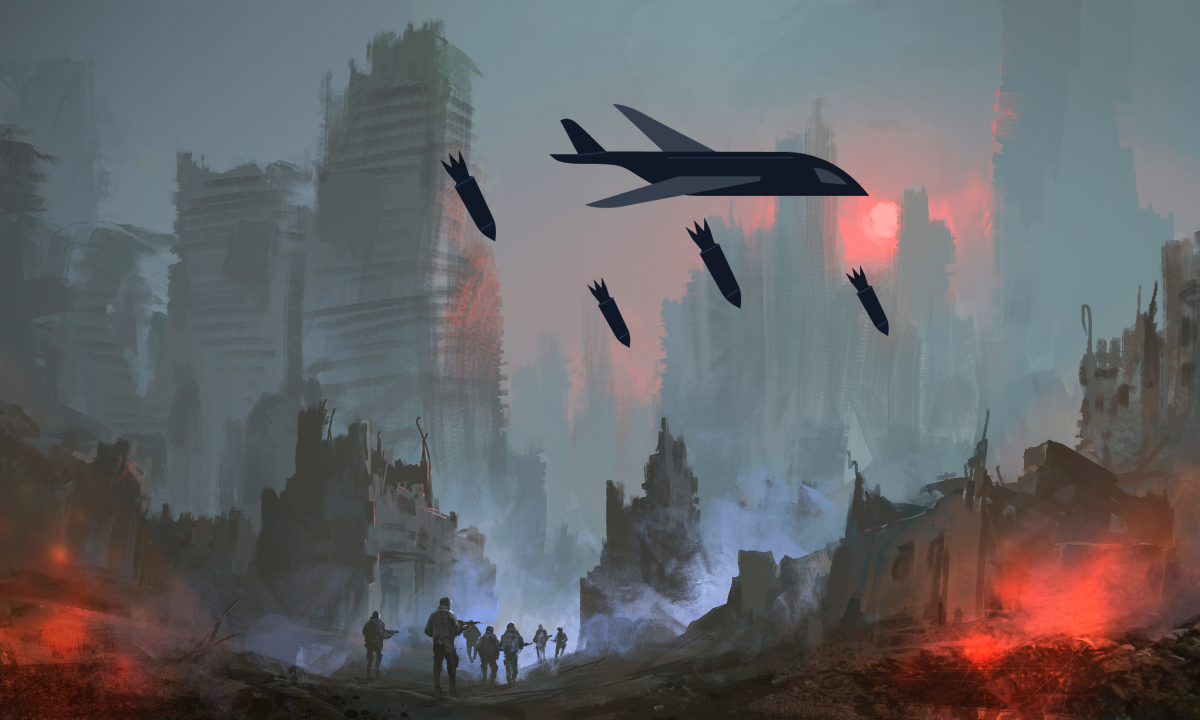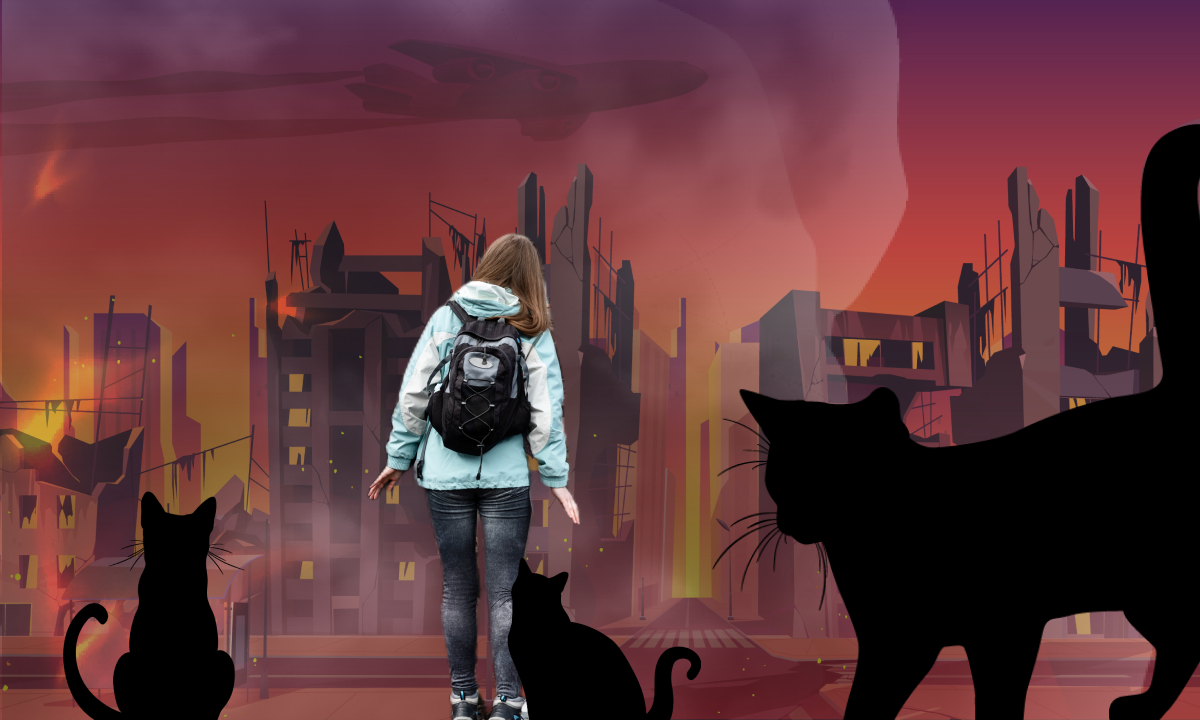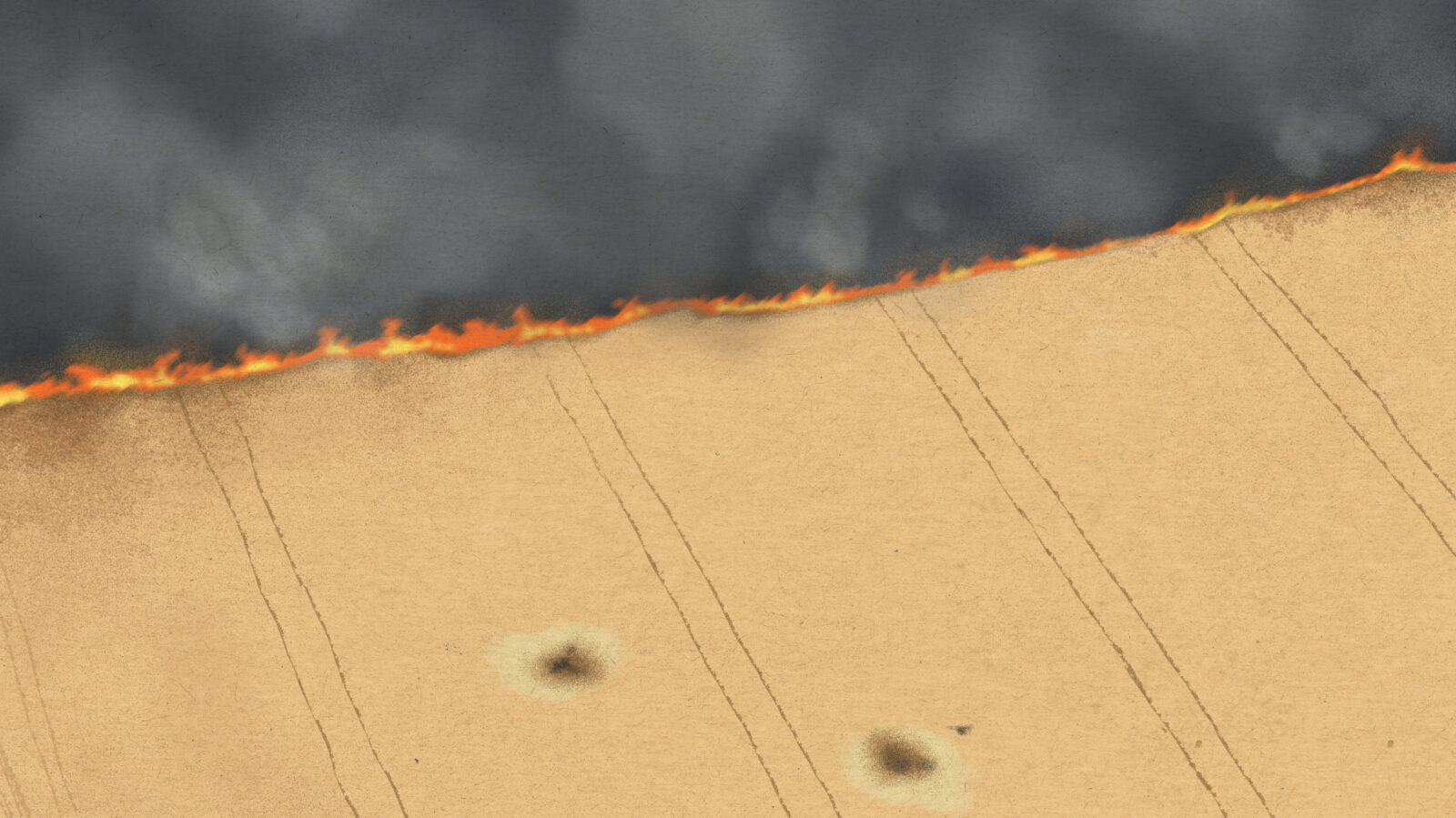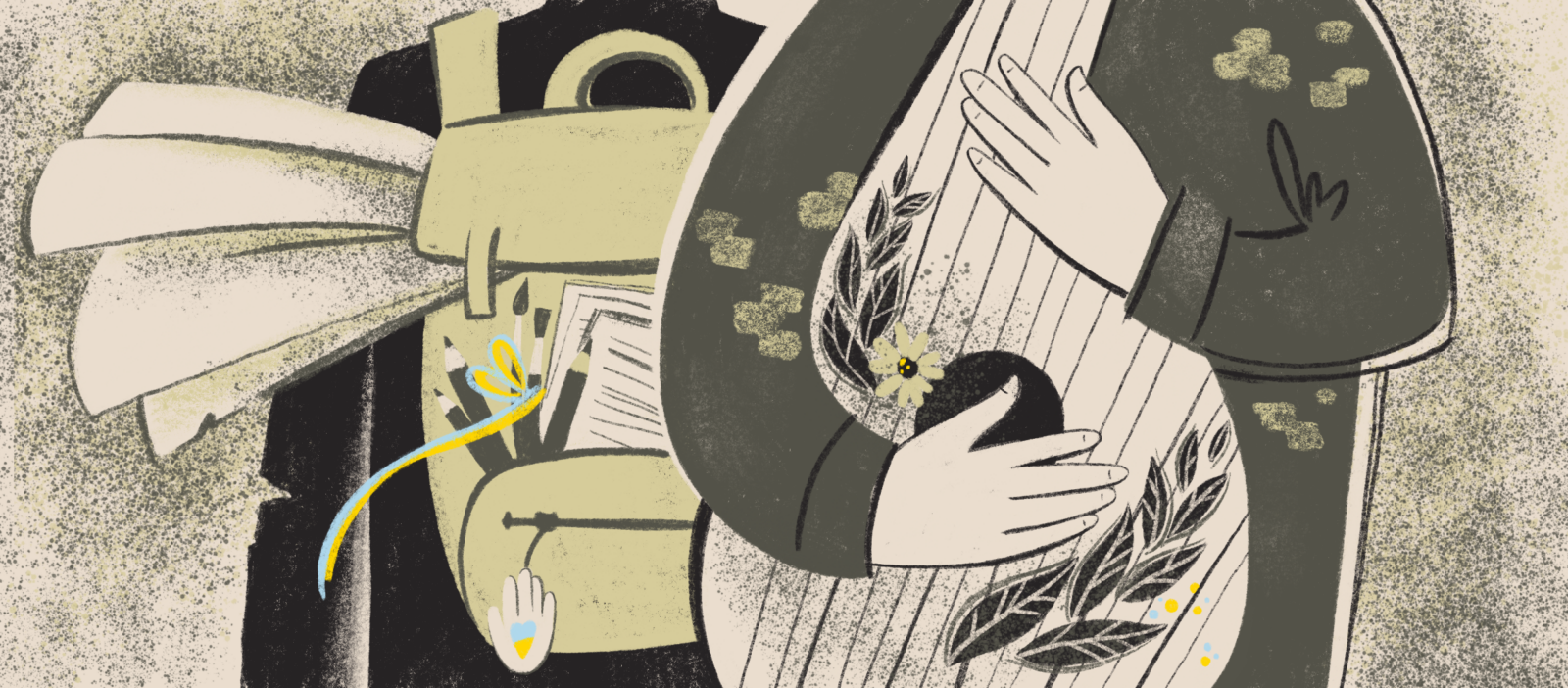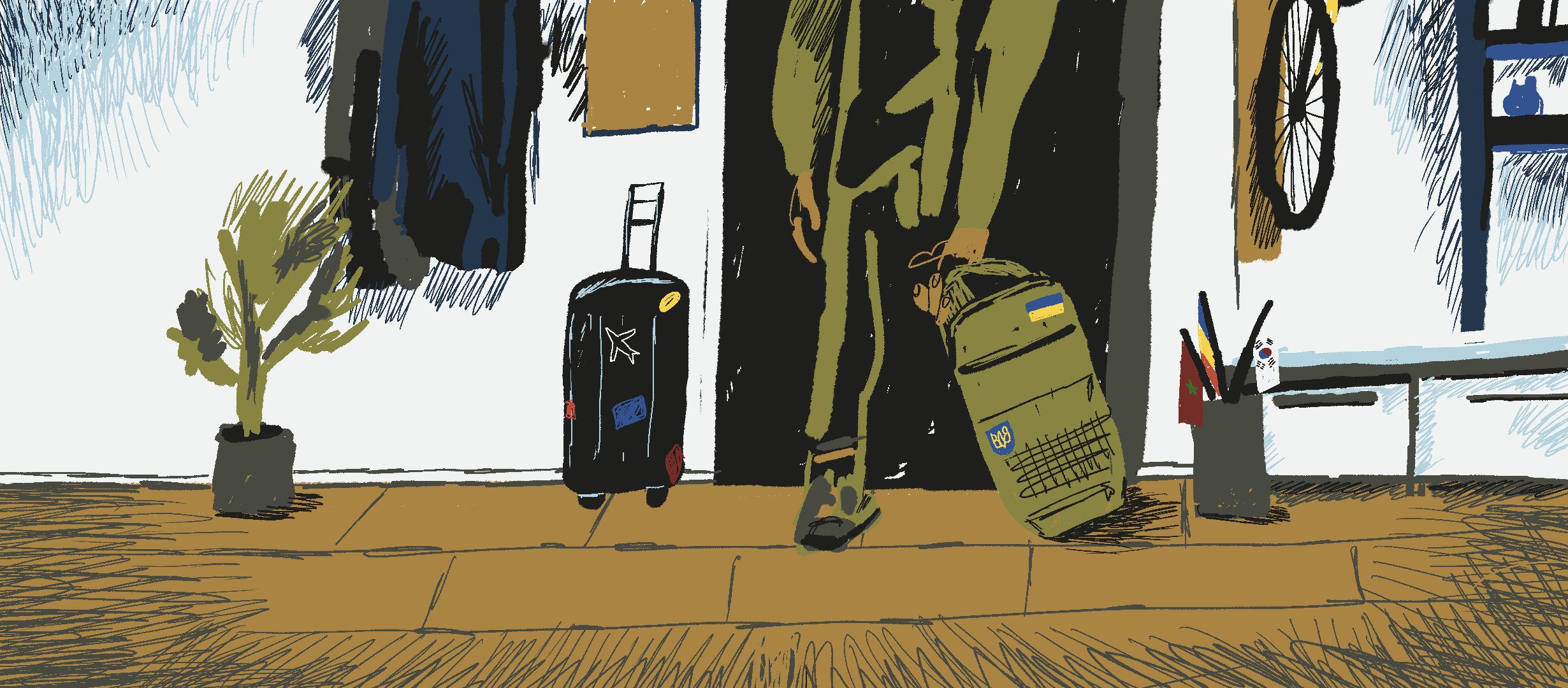Illustrated by Nastya Kryvonosiuk
“A trayful of food would be drawn out from the grocery, and people would rush toward it to try and grasp at least something. I couldn’t believe that we were also characters in this scene,” recalls Vika, 46, a screenwriter in her peaceful life. She and her three children were in Bucha, Kyiv Region, when the full-scale Russian invasion into Ukraine began. In a couple of days, Bucha turned out to be the epicenter of warfare.
The city has suffered a humanitarian catastrophe.
The war came to the Kyiv Region on the very first days of the full-scale Russian invasion into the territory of Ukraine. Due to the occupiers’ attempts to capture the city and active battles, Vika, her husband and three children—5-year-old Maryna, 10-year-old Mark and 20-year-old Masha—would regularly come down into the basement.
“It wasn’t equipped to serve as a bomb shelter: it was extremety cold, damp and dangerous to stay there. That was why we descended into that space only in the extreme cases. My daughters managed to stay strong, but my son was terrified and would drag us there all the time,” recalls Viktoria.
In a couple of days the electricity and heating went out. Once a day, their neighbors gathered in the third entrance hall next to an electric generator to charge their phones. During the first days of the war, it was possible to buy food at the shops after waiting in a long queue. However, the shop was bombed and people took away all the remaining stuff from under the rubble. Some supermarkets were distributing their food for free.
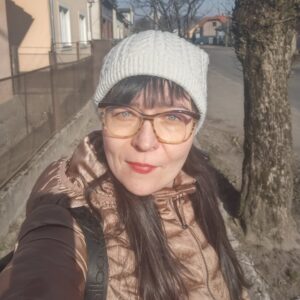
Meanwhile, the war was getting closer and closer. A shell hit the neighboring house, something was blown up near the railway, there were some smashed tanks at her son’s school, and fierce battles took place. Vika’s family did not dare to escape, spending nights and days in the basement. At that time, Bucha had already been occupied by Russians. Their wounded neighbor was carried into the entrance hall after being shot in the legs by a Russian APC. All the residents of the building were taking care of the man, and he survived.
“The power was out, but even with flashlights and candles we were very careful to make sure no-one noticed our presence. We had no cell phone connection either, we could hardly catch it in a single location on the balcony. You open the window and see your city dead and dark, with black and deserted apartment blocks. Not so long ago, Bucha was a cozy and bright place. I couldn’t believe this change,” says Vika.
The woman recollects that staying in a dark and damp basement was addictive. “You fall into a kind of anabiosis. You feel deceptively secure, it petrifies your will, and going out becomes even more difficult.” Victoria’s friends, who had arrived from Hostomel, inspired her to rescue. Their house was bombed to ruins, so they and their two children had to reach Bucha under fire, passing dead bodies and destroyed military vehicles. The two families consulted and figured out that they needed to escape because the situation was getting worse. In the morning, they packed the necessities into small backpacks and ran to Irpin under shelling. There, they had to drop down on the ground in the local park.
“Around us we witnessed explosions and shelling, someone was cross-firing literally above our heads. My husband covered our 5-year-old daughter with his body. When it calmed down, we continued to run. We had to drop down a few times, as there were explosions and fire all around, and glass fragments were clashing”, says Viktoria.
“My head was splitting up from the loud clatter. It felt like we were in an action movie. If someone had told me I would be a part of such events, I wouldn’t have believed them”.
Finally, their family reached a Ukrainian checkpoint and boarded an evacuation bus. The invaders attempted to shell it as well, but people arrived in Kyiv without harm.
“After we left, a woman gave birth in the basement of our building, and the next entry hall was bombed and destroyed. Moreover, the gas distributing system was bombed as well, so Bucha is out of gas now—the only thing people had to continue their living somehow. A few families and 20–30 retirees are still staying in our building,” says Vika.
She is currently staying with her college friend in Svaliava. The woman was going to move to her friends’ place in Germany, but her son got ill, so Vika couldn’t dare to set off right away. Her husband stayed behind in Kyiv and enrolled in the Territorial Defense Forces. “He is a scientist and has no military experience, but he wished to stay there on purpose and defend the capital for us to have a place to come back to,” explains Vika.
She adds: “My soul is in pain for my home. I left my whole life there, particularly the photos of my parents who have already left this world. The future is completely obscure.” Sometimes the 10-year-old Mark asks, “Let’s go home to Bucha.” Even though he understands that now their family has no place to come back to.

